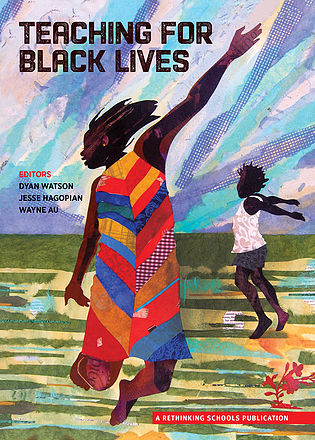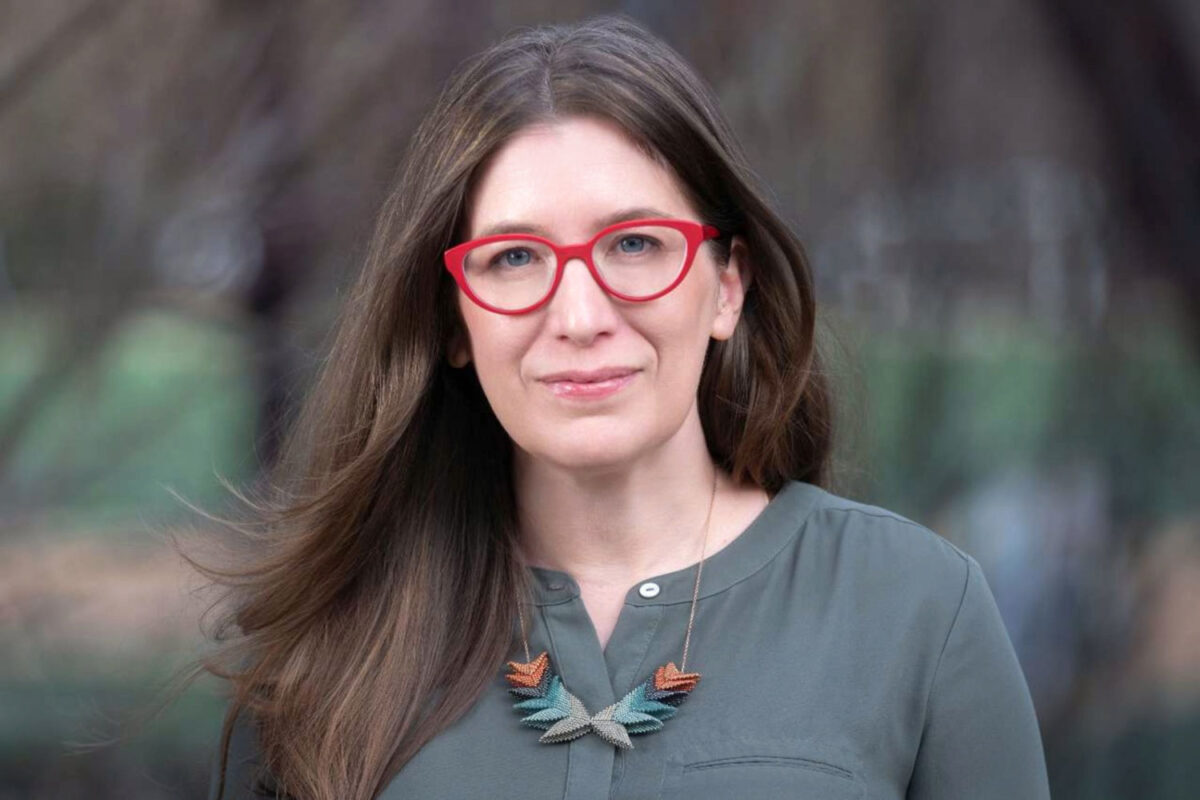A book co-edited by University of Washington Bothell Professor Wayne Au, “Teaching for Black Lives,” is being used throughout Seattle public schools thanks to support from former Seahawk Michael Bennett and rapper-songwriter Macklemore.

The two superstars purchased the book for distribution to all social studies and language arts teachers. The news was announced by another co-editor, Jesse Hagopian, on his blog, I Am an Educator. Hagopian teaches ethnic studies at Garfield High School in Seattle and is a founding member of the Social Equity Educators.
Rethinking Schools, a nonprofit committed to educational materials that promote equity and public education, published the book in April. Town Hall Seattle organized a launch event Sept. 24 at the Langston Hughes Performing Arts Institute. The editors, including Dyan Watson, read excerpts, engaged in conversations and answered questions from a sold-out audience. Watson is an associate professor in the Graduate School of Education and Counseling at Lewis & Clark College in Portland, Oregon.
“Teaching for Black Lives” is a collection of essays, poems, art and activities designed to help educators humanize black people.
“Throughout the book, we demonstrate how teachers can connect the curriculum to young people’s lives and root their concerns and daily experiences in what is taught and how classrooms are set up,” the editors write in the introduction. “We also highlight the hope and beauty of student activism and collective action.”
Au welcomes the endorsement of the high-profile athlete and the popular artist. Bennett, who was part of the Seahawks 2013 team that won the Super Bowl, now plays for the Philadelphia Eagles. He also wrote the book “Things that Make White People Uncomfortable.” Macklemore, the stage name for Ben Haggerty, is a Seattle native and multiple Grammy award recipient.
“These folks have money and cultural influence, and so their leadership in this kind of work can be critical to making positive change,” Au said.
Selling almost 3,000 copies in its first three months, “Teaching for Black Lives” has been the fastest-selling book in the history of Rethinking Schools, Au said.
“Here in the Puget Sound area, we know teachers are already reading the book and thinking about how to use it as a resource for pushing racial justice in schools and districts,” Au said. “On social media we’re getting reports from across the country of teachers, community activist groups and universities using this book to elevate conversations around racial justice. As editors, we’re getting invitations to speak in these spaces, too.”
The attention from the region and beyond shows the impact the book is having. Seattle Public Schools uses the nearly 600 donated books in racial justice work, said Au, who also is setting up some study groups with teachers and exploring the possibility of a professional development program with the district.
“We are long past due a drastic reform in our education system and curriculum,” said Stephanie Ferran-Herrera, a parent in the Renton School District who attended the Town Hall event. She is part of a group called ICARE (Inviting Conversations About Race & Equity), a partnership of social justice-minded parents and educators seeking to create a welcoming school environment.
“I hope to use the messages in ‘Teaching for Black Lives’ as a tool to facilitate more conversations about race and equity with our school and community families,” she said. “I also hope to create opportunities for trainings for our teaching staff using the critical framework in the book.”
“‘Teaching for Black Lives’ matters because it’s written by people of color and is reflective of real life,” said Kris Bien, a parent of three high school students and an arts advocate from Woodinville. “It’s helping me to understand how many issues stem from racism and is another step in my journey to understanding more about issues black students face every day. I hope it will help me to have more constructive conversations about the topics it addresses.”
The book aligns with Au’s commitment to social change and scholarship as a professor in the School of Educational Studies, where he has taught multicultural education and leads UW Bothell diversity initiatives.
“So, to me, this kind of racial justice work in K-12 schools is just a different version of the work I do as the interim dean of diversity and equity to push UW Bothell to be a more just and responsive institution,” Au said.



